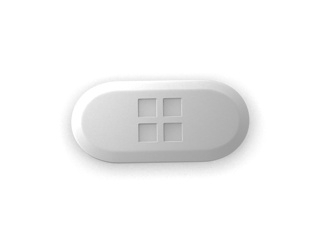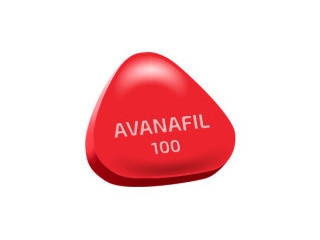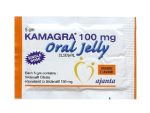Buy Neoral Cyclosporine 100mg, 25mg
Neoral
Generic name: Cyclosporine
Neoral Dosage: 100mg, 25mg
Indications for Neoral Use: Arthritis
Common use
Cyclosporine lowers your body’s immune system. The immune system helps your body fight infections. The immune system can also fight or « reject » a transplanted organ such as a liver or kidney. This is because the immune system treats the new organ as an invader.
Cyclosporine is used to prevent organ rejection after a kidney, liver, or heart transplant.
Neoral price in Canada
Buy Neoral Online: pharmacysf.com
Neoral Dosage and Administration
Take this medication exactly as prescribed by your doctor. Do not take it in larger amounts or for longer than recommended.
You may take cyclosporine with or without food, but take it the same way each time. Cyclosporine should be given in two separate doses each day. Try to take the medication at the same dosing times each day. Measure liquid medicine with a special dose-measuring spoon or cup, not a regular table spoon.
Precautions
Avoid exposure to sunlight, sunlamps, or tanning beds. Cyclosporine can make your skin more sensitive to sunlight, and a sunburn may result. Wear protective clothing and use sunscreen (SPF 15 or higher) when you are outdoors.
If you are being treated for psoriasis, you should not receive light therapy (PUVA or UVB) or radiation treatments while you are receiving cyclosporine. Make sure all doctors involved in your care know you are taking cyclosporine.
Contraindications
You should not use this medication if you are allergic to cyclosporine. You may not be able to use cyclosporine if you have:
kidney disease;
untreated or uncontrolled high blood pressure; or
any type of cancer.
If you have any of these other conditions, you may need a dose adjustment or special tests to safely take cyclosporine:
psoriasis that has been treated with PUVA, UVB, radiation, methotrexate (Trexall), or coal tar; or
if you are also taking an NSAID (non-steroidal anti-inflammatory drug) such as ibuprofen (Motrin, Advil), naproxen (Aleve, Naprosyn), diclofenac (Voltaren), etodolac (Lodine), indomethacin (Indocin), and others.
It is not known whether cyclosporine is harmful to an unborn baby. Before taking this medication, tell your doctor if you are pregnant or plan to become pregnant during treatment. Cyclosporine can pass into breast milk and may harm a nursing baby. Do not use this medication without telling your doctor if you are breast-feeding a baby.
Possible side effects
Get emergency medical help if you have any of these signs of an allergic reaction: hives; difficulty breathing; swelling of your face, lips, tongue, or throat. Call your doctor at once if you have any of these serious side effects:
urinating less than usual or not at all;
drowsiness, confusion, mood changes, increased thirst;
swelling, weight gain, feeling short of breath;
blurred vision, headache or pain behind your eyes, sometimes with vomiting;
seizure (convulsions);
muscle pain or weakness, fast heart rate, feeling light-headed;
signs of infection such as fever, chills, sore throat, flu symptoms;
pale skin, easy bruising or bleeding, unusual weakness; or
nausea, stomach pain, loss of appetite, itching, dark urine, clay-colored stools, jaundice (yellowing of the skin or eyes).
Less serious side effects may include:
tremors or shaking;
increased hair growth;
headache or body pain;
diarrhea, constipation, vomiting; or
numbness or tingly feeling.
This is not a complete list of side effects and others may occur. Call your doctor for medical advice about side effects.
Drug interaction
Many drugs can interact with cyclosporine. Below is just a partial list. Tell your doctor about all other medications you are using, especially: etoposide (VePesid, Etopophos); lithium (Eskalith, Lithobid); methotrexate (Rheumatrex, Trexall); nefazodone; repaglinide (Prandin); St. John’s wort;
an ACE inhibitor such as benazepril (Lotensin), captopril (Capoten), enalapril (Vasotec), fosinopril (Monopril), lisinopril (Prinivil, Zestril), moexipril (Univasc), perindopril (Aceon), quinapril (Accupril), ramipril (Altace), or trandolapril (Mavik);
a heart or blood pressure medication such as candesartan (Atacand), eprosartan (Teveten), irbesartan (Avapro, Avalide), losartan (Cozaar, Hyzaar), valsartan (Diovan), telmisartan (Micardis), or olmesartan (Benicar);
medicines used to treat ulcerative colitis, such as mesalamine (Pentasa) or sulfasalazine (Azulfidine);
other medicines used to prevent organ transplant rejection, such as sirolimus (Rapamune) or tacrolimus (Prograf);
pain or arthritis medicines such as aspirin (Anacin, Excedrin), acetaminophen (Tylenol), diclofenac (Voltaren), etodolac (Lodine), ibuprofen (Advil, Motrin), indomethacin (Indocin), naproxen (Aleve, Naprosyn), and others;
IV antibiotics such as amphotericin B (Fungizone, AmBisome, Amphotec, Abelcet), amikacin (Amikin), bacitracin (Baci-IM), capreomycin (Capastat), gentamicin (Garamycin), kanamycin (Kantrex), streptomycin, or vancomycin (Vancocin, Vancoled);
antiviral medicines such as adefovir (Hepsera), cidofovir (Vistide), or foscarnet (Foscavir); or
cancer medicine such as aldesleukin (Proleukin), carmustine (BiCNU, Gliadel), cisplatin (Platinol), ifosfamide (Ifex), oxaliplatin (Eloxatin), streptozocin (Zanosar), or tretinoin (Vesanoid).
Missed dose
Take the missed dose as soon as you remember. If it is almost time for your next dose, wait until then to take the medicine and skip the missed dose. Do not take extra medicine to make up the missed dose.
Overdose
Seek emergency medical attention if you think you have used too much of this medicine.
Overdose can cause nausea, vomiting, pain in your upper stomach, loss of appetite, jaundice (yellowing of the skin or eyes), and urinating less than usual or not at all.
Storage
Store cyclosporine at room temperature away from moisture and heat.
Disclaimer
We provide only general information about medications which does not cover all directions, possible drug integrations, or precautions. Information at the site cannot be used for self-treatment and self-diagnosis. The specific instructions for a particular patient should be agreed with your health care adviser or doctor in charge of the case. We disclaim reliability of this information and mistakes it could contain. We are not responsible for any direct, indirect, special or other indirect damage as a result of any use of the information on this site and also for consequences of self-treatment.













